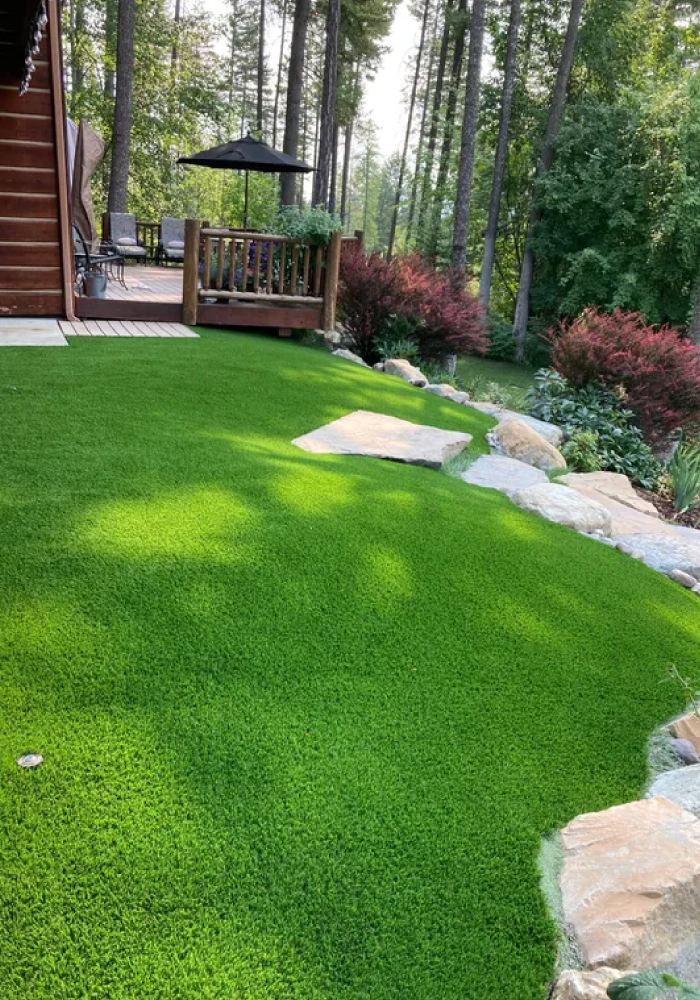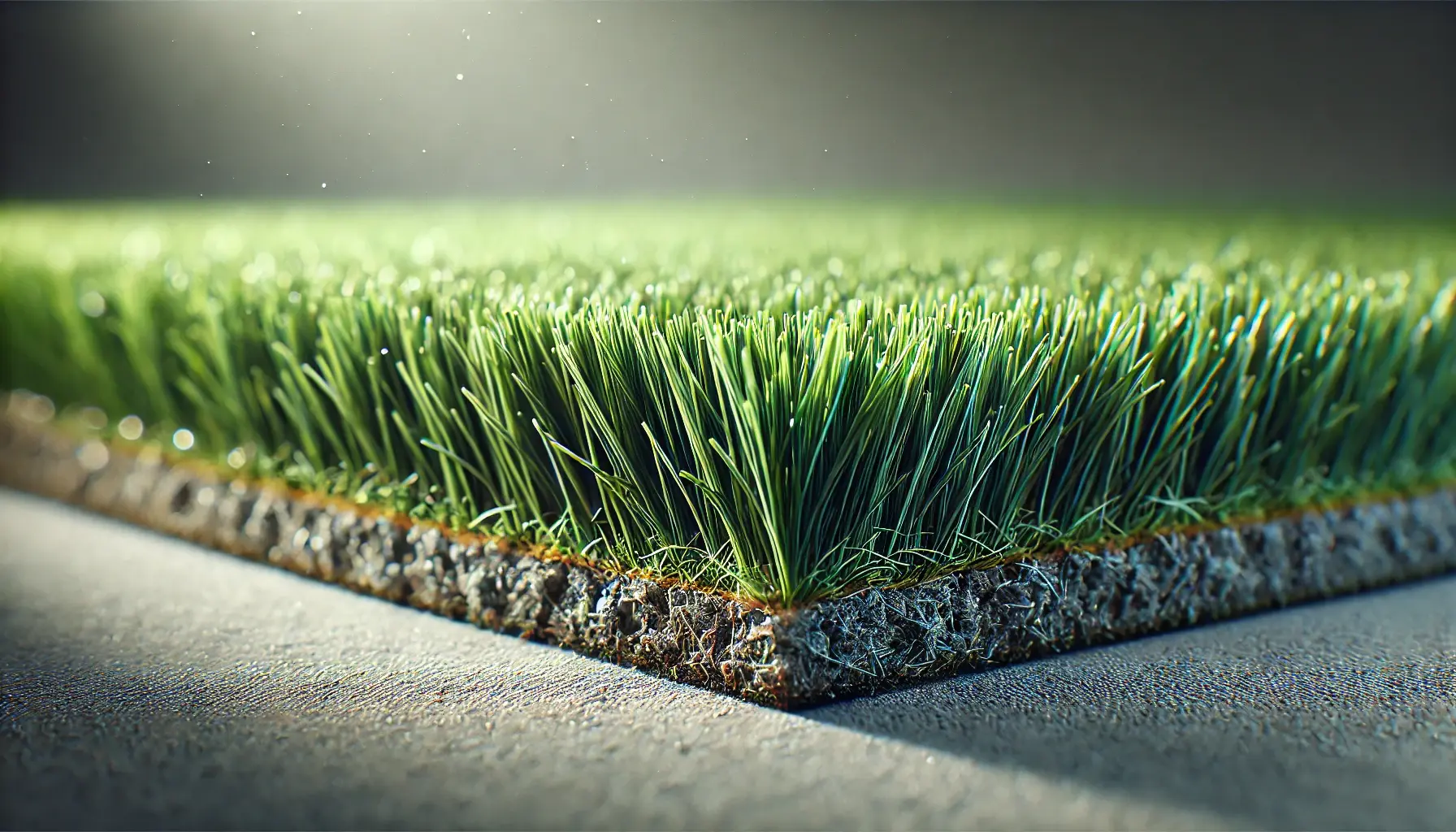Explore the Environmental Benefits of Opting for Artificial Lawn Solutions
The fostering of man-made grass solutions offers a compelling opportunity to resolve pressing ecological difficulties. By considerably lowering water use and minimizing the application of unsafe chemicals, these choices not only advertise sustainable landscape design however also secure regional ecosystems. The lower carbon impact associated with lowered maintenance tasks contributes to a much more lasting method to land monitoring. The implications of these benefits prolong past mere conservation initiatives, elevating questions regarding their lasting influence on habitat preservation and general eco-friendly balance. Exploring these measurements reveals a complicated interaction worth thinking about.
Water Conservation Perks
Among one of the most significant benefits of fabricated lawn is its capacity to preserve water. Typical yard yards need considerable irrigation, especially in locations vulnerable to dry spell or water limitations. On the other hand, synthetic grass does not require watering, significantly reducing the total need for water resources. This feature is specifically advantageous in deserts where water shortage is a pressing issue.
By getting rid of the need for routine watering, artificial grass adds to sustainable landscape techniques and helps alleviate the environmental influence of extreme water intake. Additionally, the preservation of water reaches the decrease of drainage, which can result in dirt erosion and waterway contamination.
Additionally, the installation of man-made lawn allows communities and home owners to allocate water resources much more effectively, concentrating on essential uses such as drinking water and agriculture. The shift in the direction of fabricated lawn not only promotes responsible water usage however additionally aligns with broader environmental goals focused on protecting natural deposits.
As communities progressively focus on sustainability, the water preservation benefits of synthetic grass provide an engaging instance for its fostering in business and property landscape design jobs.
Minimized Chemical Use
The shift to synthetic grass considerably reduces the reliance on chemical treatments generally made use of in all-natural lawn upkeep. Standard grass monitoring commonly entails the application of fertilizers, chemicals, and herbicides to promote development and control parasites. These chemicals can present dangers to human health, neighborhood wild animals, and the environment, adding to dirt and water contamination.
In contrast, fabricated turf removes the need for these dangerous substances. By lessening the release of synthetic substances right into the community, fabricated turf advertises healthier dirt and water systems.
Furthermore, the lack of chemical runoff connected with man-made lawn installations assists shield local waterways from air pollution, supporting aquatic life and preserving biodiversity. Arizona turf. As neighborhoods progressively focus on lasting practices, choosing synthetic grass offers a viable service that lines up with ecological preservation objectives. Via this change, home proprietors can appreciate lavish green spaces without compromising ecological health and wellness, leading the way for a much more sustainable future
Lower Carbon Impact

In addition, the setup of fabricated grass can result in significant water conservation. All-natural yards call for substantial quantities of water for watering, which not just adds to the carbon footprint connected with water removal and therapy however additionally pressures local water sources. On the other hand, synthetic grass needs minimal maintenance, calling for no watering, Check This Out thereby significantly decreasing water use and its connected energy prices.
Furthermore, the durability of fabricated grass adds to its decreased carbon impact. With a life-span of as much as 15 years or more, the demand for regular substitutes is decreased, leading to much less waste and lower power usage in manufacturing and throwing away standard lawn options. Overall, fabricated turf provides a sustainable choice for eco aware landscaping.
Habitat Conservation
Environment conservation is an important factor to consider in the discussion over landscaping selections, particularly when contrasting man-made turf to all-natural lawn. Natural lawn yards frequently call for considerable upkeep, consisting of the usage of pesticides, fertilizers, and herbicides, which can negatively affect local environments. These chemicals can leach right into the dirt and waterways, harming native vegetation and fauna and interfering with neighborhood environments.
On the other hand, synthetic grass provides a possibility to reduce the ecological impact of landscaping. By choosing artificial turf, property owners can decrease the disruption of all-natural Visit Your URL environments connected with traditional yard care techniques. Synthetic grass removes the demand for hazardous chemicals, consequently shielding neighboring wildlife and preserving the integrity of surrounding environments. Furthermore, the installation of synthetic grass can bring about the conversion of former lawn locations right into even more biodiverse landscapes, such as pollinator gardens or indigenous plant locations, which can sustain regional wildlife.
Ultimately, the shift to synthetic grass not only preserves water and lowers maintenance efforts however likewise fosters an extra unified connection in between human activities and the natural surroundings, advertising habitat conservation at the same time.
Long-Term Sustainability
Long-lasting sustainability is a vital factor in assessing the advantages of man-made turf over conventional lawn yards. Among the most significant advantages of artificial grass is its longevity; it can last up to 15-20 years with minimal maintenance, whereas natural yard requires regular reseeding and substitute. This durability lowers the need for continuous resources, such as water, plant foods, and chemicals, which are essential for maintaining a healthy and balanced grass lawn.
Additionally, artificial lawn adds to a reduction in carbon discharges connected with grass care tools. Standard lawns often call for gas-powered mowers, leaners, and blowers, all of which contribute to air contamination. Arizona turf. On the other hand, synthetic grass removes the need for such devices, advertising a cleaner setting
Additionally, the manufacturing of synthetic grass significantly makes use of recycled products, boosting its sustainability account. As suppliers adopt environmentally friendly techniques, the environmental impact of synthetic grass proceeds to important link diminish.

Final Thought
The adoption of fabricated turf solutions provides considerable ecological advantages, consisting of substantial water conservation, reduced dependence on hazardous chemicals, and a lower carbon impact. Artificial lawn help in protecting all-natural environments by minimizing land disruption and advertising long-term sustainability through the use of durable materials. Collectively, these variables emphasize the potential of synthetic grass to contribute positively to environmental health and wellness and offer a viable alternative to traditional landscape design methods in a progressively resource-conscious globe.
In contrast, fabricated grass does not need watering, considerably decreasing the overall need for water resources. By reducing the release of artificial substances right into the community, synthetic grass promotes much healthier soil and water systems.
Moreover, the setup of fabricated grass can result in significant water conservation. In comparison, artificial grass needs minimal upkeep, calling for no watering, thereby significantly lowering water use and its linked energy expenses.
